Ethiopia
Ethiopia’s prime minister was on Friday named winner of the 2019 Nobel Peace Prize, recognised for his peacemaking efforts which ended two decades of hostility with longtime enemy Eritrea.
Though Africa’s youngest leader still faces big challenges, he has in under two years in power begun political and economic reforms that promise a better life for many in impoverished Ethiopia and restored ties with Eritrea that had been frozen since a 1998-2000 border war.
“We are proud as a nation,” the prime minister’s office said in a statement, hailing a “collective win for all Ethiopians, and a call to strengthen our resolve in making Ethiopia – the new horizon of hope – a prosperous nation for all.”
Nobel Committee explains choice of Abiy
The Nobel Committee said Abiy had won the prestigious prize for “efforts to achieve peace and international cooperation, and in particular for his decisive initiative to resolve the border conflict with neighbouring Eritrea.”
It said the prize was meant to recognise “all the stakeholders working for peace and reconciliation in Ethiopia and in the East and Northeast African regions.”
The Nobel Committee’s decision appeared designed to encourage the peace process, echoing the 1994 peace prize shared by Israeli and Palestinian leaders and the 1993 award for moves towards reconciliation in South Africa, said Dan Smith, head of the Stockholm International Peace Research Institute.
“It is a case of wanting a constructive intervention in the peace process … to give leverage and encouragement,” he told Reuters.
“The challenge now is internal for Abiy Ahmed, with Ethiopia needing to deal with the consequences of long-term violence, including three million displaced people and the need for continuing the political process.”
Abiy had been bookmakers’ second favourite to win, behind the teenage Swedish climate change campaigner Greta Thunberg.
African leaders congratulate Abiy
I believe that the development of Africa is strongly tied to peaceful co-existence, and to deliberate efforts by governments and citizens to sustain harmony within and between countries. We must do more in collaboration and partnership for peace across the continent.
— Muhammadu Buhari (@MBuhari) October 11, 2019
Congratulations to my brother & friend Prime Minister
— Paul Kagame (PaulKagame) October 11, 2019AbiyAhmedAli, 2019 Nobel Peace Prize Laureate. Well deserved! Your remarkable commitment to Ethiopian unity, as well as regional peace and cooperation, are an inspiration to many in Africa.
I join Africa and the world in congratulating Ethiopian Prime Minister, Dr. Abiy Ahmed Ali for winning the Nobel Peace Prize, 2019. Thank you for all you do to promote peace, solidarity and social justice. The young breed of African leaders are very proud of you & inspired by you pic.twitter.com/8EwkCoCneF
— BOBI WINE (@HEBobiwine) October 11, 2019
The Chairperson of the
_AfricanUnionCommission AUC_MoussaFaki Mahamat warmly congratulates the Prime Minister of the Federal Republic of #Ethiopia Dr.AbiyAhmedAlion being awarded the #Nobel Prize for #Peace 2019 by the Norwegian Nobel Committee https://t.co/34liGmY390 pic.twitter.com/jag7yHxj8G— African Union (@_AfricanUnion) October 11, 2019
Congratulations to PM #AbiyAhmed on winning the #NobelPeacePrize !! #Ethiopia is in a delicate place but so much has been done to make it a home for everyone. Far to go, but this is a gesture and a light pointing forward.
— Maaza Mengiste (@MaazaMengiste) October 11, 2019
More work to do
Abiy, now 43, took office in April 2018 after the resignation of Hailemariam Desalegn following three years of street unrest.
From partial liberalisation of the state-controlled economy to overhauling the security forces that had helped the ruling coalition maintain a tight grip on power since 1991, the promises have raised hopes in the country and abroad.
Abiy’s landmark achievement to date is securing peace with neighbouring Eritrea.
What remains to be seen is whether Abiy – who joined the Ethiopian army in his teens and rose through the ruling EPRDF coalition over the past two decades – can reshape Ethiopia and open it up to the world from within the current system.
He faces resistance to change from vested interests within his coalition and the possibility that violence, including in June when a rogue state militia leader killed the region’s state president and other top level officials, could escalate.
Abiy also faces high expectations from young Ethiopians who want jobs, development, and opportunities.
Ethiopians react
News of the award trickled slowly down to the streets of the Ethiopian capital, Addis Ababa. Bisrat Hadte, a 45-year-old businessman, said he was glad but the government still had much to do to improve daily life in the country of about 100 million.
“The prime minister also has to work on to improve the economy and drive down the cost of living,” he told Reuters.
“As an Ethiopian actually I am very happy that the prime minister won the Nobel peace prize,” said Desalegn Chane, president of the new National Movement of Amhara (NAMA) party told Reuters by phone.
“However, we still have legitimate concerns and grievances that Abiy needs to address. The political repression our people the Amhara have been suffering from has continued under Abiy.”
“Three of our party leaders are still in jail suspected of being the plotters of the June coup attempt but still haven’t been formally charged,” he said.
The Nobel Peace Prize will be presented in Oslo on Dec. 10, the anniversary of the death of Swedish industrialist Alfred Nobel, who founded the awards in his 1895 will.
REUTERS




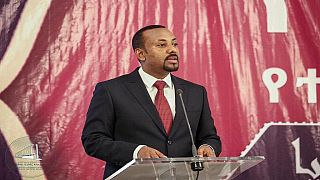

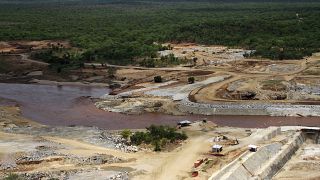
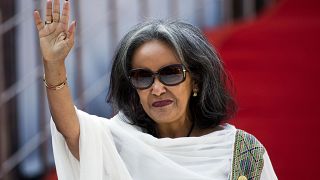
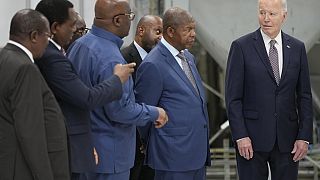
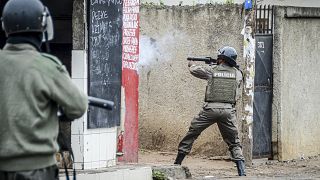

00:58
Somaliland opposition leader wins presidential poll
11:07
Botswana's new government races to diversify its economy {Business Africa}
01:51
Meet the churches welcoming migrants across the world and championing diversity
Go to video
Ethiopian runner Yomif Kejelcha breaks men's half-marathon world record
01:38
Malaysia, Ethiopia agree to strengthen bilateral ties
00:41
Ethiopian PM Abiy Ahmed meets Putin at BRICS Summit, pushes for stronger trade ties